

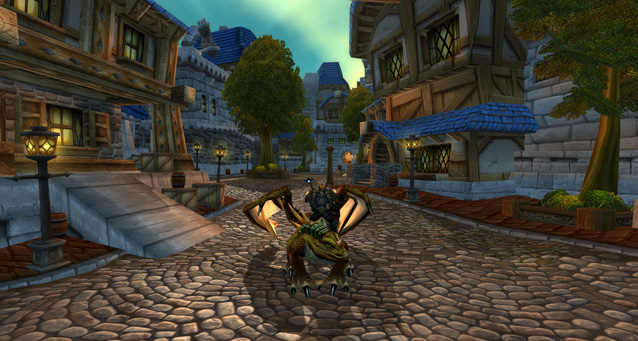
I've been thinking a lot lately about why World of Warcraft does not seem to have a place in the greater gaming world. Gamers seem to be separated from WoW players, and WoW isn't featured very often in mainstream games criticism. The game has a huge player base, and there are hundreds and hundreds of WoW blogs out there, but these are mostly not read by anyone who is not already a WoW player.
WoW, to me, seems to be a great walled city in the nation of gaming. Everyone knows of Azeroth, but its people keep to themselves behind solid, strengthened fortifications. There's a significant divide between them and the rest of gamingkind that isn't often traversed. Part of the reason for this, I feel, is that WoW simply has a horrible reputation. It is the one game that players of other games love to hate on, frustratingly often with little or no knowledge or consideration. Is this because of WoW's exposure in the mainstream media, particularly in sensationalist news reports? I mean, how many times have you read stories about "WoW addicts" who have purportedly neglected their schoolwork, their jobs, and even their families in pursuit of becoming the greatest player in an online world? Yes, people can get addicted to WoW (and it doesn't stem from being a "sad" or "pathetic" person, as addicts are often brushed away as, but that's a post for another day). People can also get addicted to other games, behaviours, or substances. In the gaming world, though, it's WoW that draws the attention of the media.
Gamers have a bad enough reputation in mainstream culture already, and the exaggerated reputation of WoW players simply makes gamers look even worse. So gamers divorce themselves from the dreaded WoW player; "I'm a gamer, but I'm not one of those sad people who play WoW," they say. "I'd never play WoW, it's a terrible game. I don't see the appeal in killing dragons on a Wednesday night; unlike WoW players, I have a life."
WoW players are shrugged off as hopeless no-lifes, or, ironically, casual gamers, people who can't be considered real gamers.

And this is exactly why we need more WoW-centric analysis and criticism. There is simply so little of it out there in the greater mainstream, especially in the face of the uninformed disparagement it receives. And no wonder why - who wants to be associated with a reputation like that? Who would want to reveal themselves as a WoW player when all they're likely to hear is judgement such as "I don't know why you play such a terrible game" from people who have never even tried it? What incentive is there for potential critics to weather the game when, by all accounts, it's merely a silly, addictive slot machine featuring dancing gnomes? In the gaming community, ownership of a WoW account is a telling stain on your gaming badge of honour. "WoW players" are an undesirable caste, looked upon with disdain no matter how intelligent or rational or un-addicted their players may be.
For two years at my university, I was pigeonholed by my fellow gamers as "the WoW girl" for having briefly mentioned it in one game design class. It stuck. For two years I would hear offhand, derogatory references to "the WoW girl", never mind that I played a huge variety of other games, or even that I'd quit WoW for months at a time to focus on my studies. The fact that I had once alluded to having a WoW account was what other gamers zeroed in on, using this to undermine my credibility in the area of gaming knowledge.
So when I look at the great walled city, I can understand why WoW players have built the walls around themselves; it's a response to the derision they've received. Those who reside outside the great city's walls don't wonder about those who live within, but are happy to form opinions and judgement, cast stones that continue to build up along the outer wall. The WoW players keep to themselves, going about their own business and strengthening their own community. Few people from the opposing sides engage with each other, a sad fact that shows clearly in existing WoW criticism.
WoW blogs often focus on areas of expertise utilised within the game itself, irrelevant to any other game world or even the real world: how to profit on the in-game Auction House, for example, or analyses of minute changes to the warlock class' talents. Even bloggers focusing on situations or lines of thought that could be transposed into other games or real-life situations, such as discrimination issues, are often written only for the WoW-playing audience, replete with WoW-specific lingo and references to in-game zones or mechanics often lost on non-players. Follow some WoW players on Twitter and you might find a lot of tweets musing about in-game events or raiding, providing little context or information for the outsiders. With each word the wall is strengthened, the divide widened.
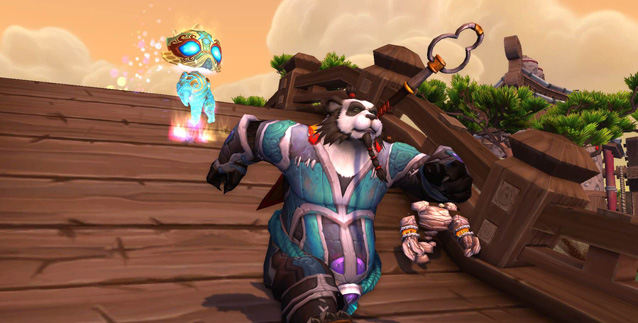
The WoW community itself is huge, and does not miss any of the strident discussion or frenzied debates that occur in other areas of the gaming nation. Still, I'm sad to see such an increasing divide between the two. WoW boasts some incredibly complex mechanics that exist in a state of constant flux: a mathematician's dream. Sad stories unfurl in each of Azeroth's many continents. Pinpoint-careful design around player interaction and teamwork is a stellar storytelling medium for human nature. This is not a superficial money sink, and it's disappointing that the commentary it's so far encouraged does not reach the mainstream and is, therefore, unable to enrich it.
The wall only grows thicker - from both sides.
So how can we knock out a hole in that wall, to allow people to move freely between WoW and the rest of the gaming nation without fear? For one thing, we can be more welcoming and considerate of the things that WoW players are able to contribute to the greater gaming community. We can simply accept that we have a lot to learn from them. Maybe then WoW bloggers can feel comfortable verbalising thoughts that aren't so exclusive to people outside of the community. This can only pique the curiosity of others, get them interested in WoW criticism, maybe even get them interested in critiquing the game itself.
As gamers, we can only grow stronger - strong enough to bring down those walls and move freely amongst each other once again.
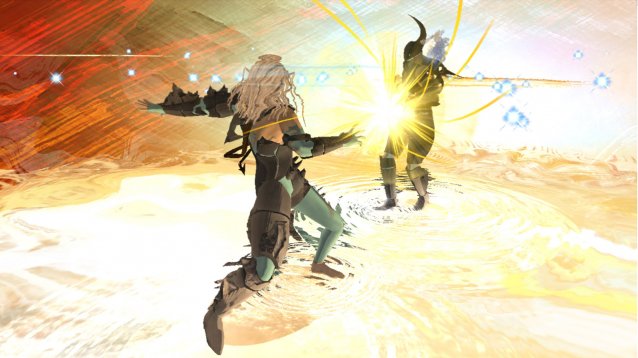
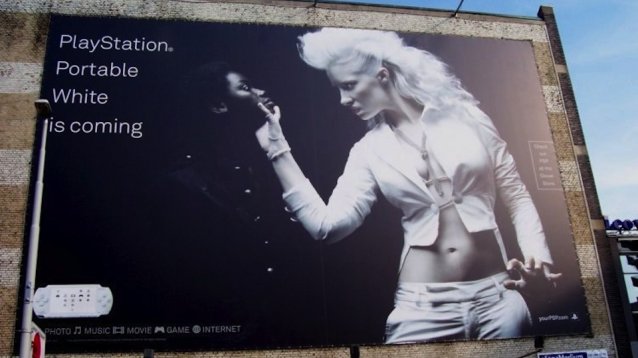


 10 Fun Chrome Extensions for a Little Christmas Cheer
10 Fun Chrome Extensions for a Little Christmas Cheer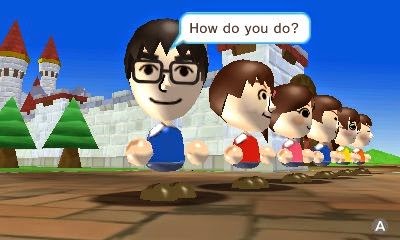 Pokémon Rumble World (3DS) tips
Pokémon Rumble World (3DS) tips F1 2014 Wiki – Everything You Need To Know About The Game .
F1 2014 Wiki – Everything You Need To Know About The Game . Official Watch Dogs achievements revealed
Official Watch Dogs achievements revealed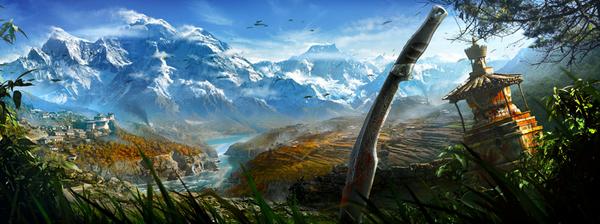 How to get Far Cry 4 From A Distance Trophy / Achievement
How to get Far Cry 4 From A Distance Trophy / Achievement